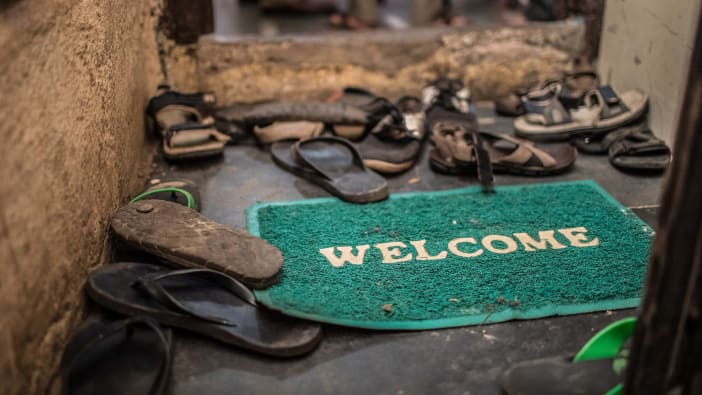Reconciliation
Reconciliation is a process that goes beyond forgiveness. It is achieved when people who have been in conflict reach a positive relationship with each other. Reconciliation usually requires an experienced mediator or counsellor who is trusted and can speak to every one involved in the conflict. This counsellor must be wise, emotionally mature, resilient, objective, and never take sides. He or she should be well respected in the community, and remain committed however long the process takes.
A mediator cannot solve the conflict on their own. All those involved must decide that reconciliation is the best option for each of them, that it is better than continuing the conflict. Everyone needs to be committed to the process, to making it as easy as possible to sit at the same table and live in the same community. Potential future conflicts should be discussed and worked through. Commitment to reconciliation must be demonstrated by an appropriate action. For example, in Uganda, this meant agreeing that children of former rebels can be accepted in schools.
Where an offence has been committed, the offender should be sorry, and ready to admit that. If they do not want to communicate, or are defensive, it means they are not ready for reconciliation. Sometimes people seek financial compensation. However, this is rarely a long-term answer. It might meet some physical needs of the injured person, but it does not resolve the situation. Ideas of revenge can always re-surface.
Reconciliation is not just an event. It must become a value and a lifestyle. It should be passed on from one generation to the next, through Bible study, discussion, discipline, and by living as an example. Forgiveness and reconciliation are part of a journey that few people make but whose destination is freedom, health, and peace.
Sarah Mirembe is a consultant and counsellor working with children and young people in Uganda. Her address is:
Box 2989
Kampala
Uganda
Email: [email protected]
Case study
In Uganda, many children, young people and adults have been abducted and forced to join the Lord’s Resistance Army. Even if they manage to escape and return to their community, they face the long-term challenge of forgiveness and reconciliation. This is how one young woman described her journey towards forgiving the man who had abducted her:
‘I hated you, because of the pain you caused me. But I was reminded of you everywhere I went. So I was stuck, because I hated you, and yet I had to live with memories of you. The counsellor helped me to realise that I hated being stuck with you. That was the first motivation for me to forgive you. Hating you made me so sick; I desperately wanted to be well, so I agreed with the counsellor to help me throw the hatred out.’










